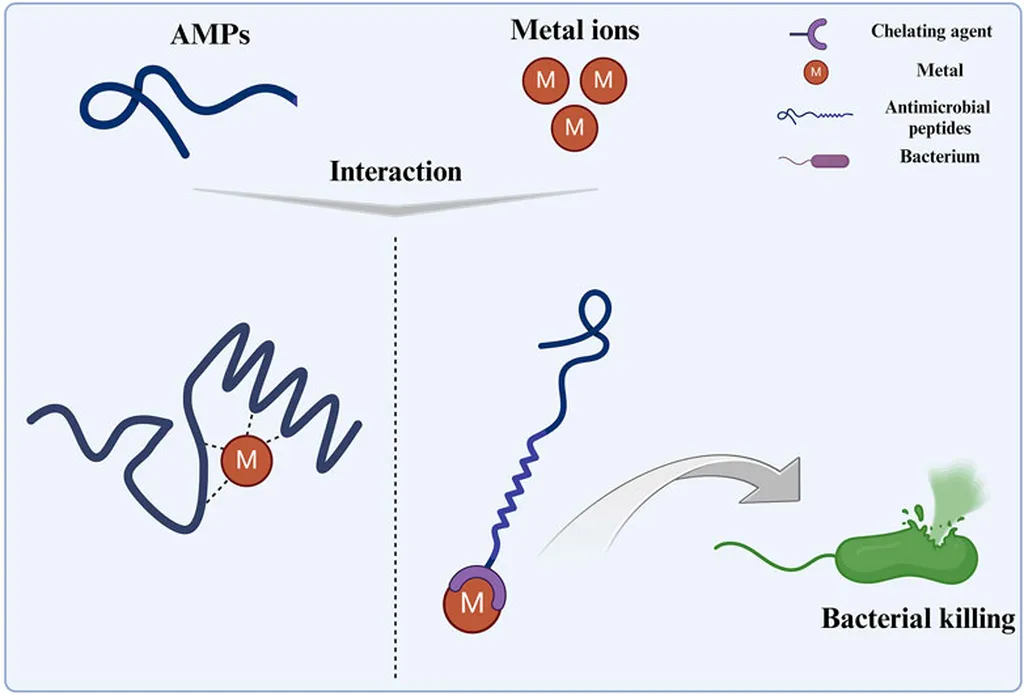In the relentless battle against multidrug-resistant pathogens, a glimmer of hope emerges from the laboratories of the University of Naples Federico II. Researchers, led by Elena Scaglione from the Department of Molecular Medicine and Medical Biotechnology, have unveiled a novel hybrid peptide, WMRK-gH625, with promising in vitro properties that could revolutionize the agricultural sector’s fight against resistant pathogens.
The study, published in the esteemed journal ACS Omega, introduces WMRK-gH625 as a potent weapon in the arsenal against pathogens that have developed resistance to multiple drugs. These pathogens pose a significant threat to agriculture, causing crop losses and reducing yields, which can have profound economic implications.
Scaglione and her team have demonstrated that WMRK-gH625 exhibits broad-spectrum antimicrobial activity, effectively targeting a range of multidrug-resistant pathogens. This is a significant breakthrough, as the agricultural industry grapples with the challenges posed by these resilient microorganisms.
“Our findings suggest that WMRK-gH625 could be a game-changer in the fight against multidrug-resistant pathogens in agriculture,” said Scaglione. “The peptide’s ability to target multiple pathogens makes it a versatile tool for crop protection.”
The commercial impacts of this research could be substantial. By developing WMRK-gH625 into a commercial product, farmers could benefit from a more effective and sustainable means of protecting their crops. This could lead to increased yields, improved food security, and enhanced economic stability for agricultural communities.
Moreover, the development of WMRK-gH625 could spur further innovation in the field of agricultural biotechnology. As researchers continue to explore the potential of hybrid peptides, new and more effective solutions for crop protection may emerge.
“Our research is just the beginning,” Scaglione added. “We hope that our findings will inspire further investigation into the use of hybrid peptides in agriculture and pave the way for the development of new and innovative crop protection strategies.”
The study published in ACS Omega, led by Elena Scaglione from the Department of Molecular Medicine and Medical Biotechnology at the University of Naples Federico II, opens a new chapter in the fight against multidrug-resistant pathogens in agriculture. As the agricultural industry continues to evolve, the development of novel and effective solutions for crop protection will be crucial in ensuring food security and economic stability. The research on WMRK-gH625 is a promising step in this direction, offering hope for a future where farmers can protect their crops more effectively and sustainably.

